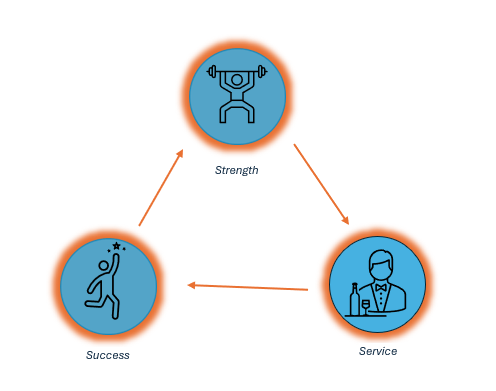I noticed the new school sign. It still had the same insignia of the Chi Ro Christogram but now it also had the words Strength, Service and Success.
As we crossed the old bridge over the River Irwell, that umbilical cord of the Industrial Revolution, the dogs strained on their leashes as two cyclists approached from the other side.

